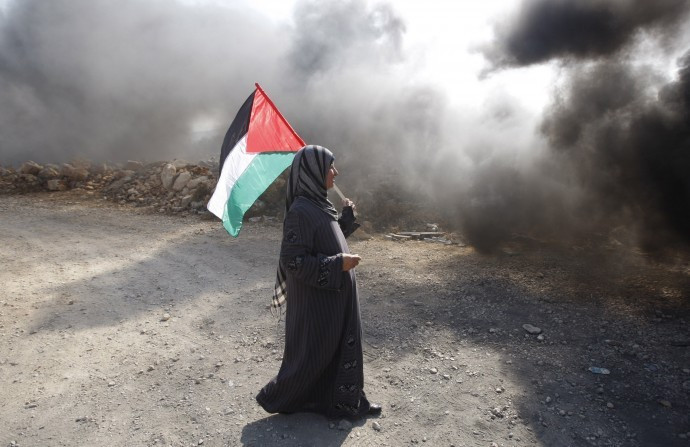When Will the Israeli Army Stop Using Tear-Gas as a Deadly Weapon? (BLOG)

The sun shone through the vines and caught on the face of Abu Walid. He moved closer to his 17-year-old son Waseam, who in turn stared into the near distance. The courtyard where we were sitting was suffused with the smell of sweet tea. An awkward silence filled the seconds as my question hung in the air.
I had asked Abu Walid to describe the moments after a metal tear-gas canister had struck his son on the head. He paused as the memories collected. Finally, he looked up from his tea and said:
"At first I didn't think it was serious, just some blood on his head...The man who works with the ambulance told me we had to go straight through the checkpoint...The soldiers also knew it was serious because when we come they open the checkpoint for us. They telephoned ahead to the hospital because they knew every minute counted."
His son Waseam now sits beside him after returning from Jordan where he had an emergency life saving operation. By all accounts he is lucky to be alive.
Boys from the village differ on what they say happened on the day Waseam was shot. The one aspect everyone agrees on was that the tear-gas canister was fired directly at the crowd by an Israeli soldier. When fired directly at a crowd, as opposed to being fired at an angle into the sky, tear-gas ceases to be a crowd dispersal technique and becomes a weapon. This violates the Israeli military's own regulations on the use of tear-gas.
Sadly, Waseam is not the only person to be struck by a canister either in his West Bank village of Kafr Qaddum, or across the occupied Palestinian territories. Every week that I monitored the demonstration in his village, I witnessed the Israeli military violate their own standards by firing tear-gas canisters directly at the crowds. On a number of occasions people were taken to hospital after being struck by these metal canisters.
The use of tear-gas in this way can have deadly consequences.
A year ago, Mustafa Tamimi died after being struck by a tear-gas canister fired only a few metres from him. At the time, Tamimi's death was met with international outrage.
The Israeli military described his death as an "exceptional incident". My experiences as a human rights monitor at weekly demonstrations across the West Bank indicate that this is not the case.
Indeed, the British Member of Parliament for Bath Don Foster supported this view, saying, "It would appear that the military regularly violates its own regulations [regarding the use of tear-gas] at Palestinian demonstrations."
Equally, the Israeli human rights organisation B'Tselem has been "warning officials that security forces [have been firing] ...tear-gas canisters directly at persons during demonstrations" for "several years".
Two days after Tamimi's death, the Military Police Investigations Unit (MPIU) opened an investigation into his death. A year later, there has been no public comment as to why the investigation has not come to any conclusion.
Noa Tal, of B'Tselem noted that "an inquiry lasting a period of nearly one year cannot be considered reasonable".
While B'Tselem rightly highlights the legal repercussions of this drawn out process and the de facto impunity that results from it, the family and friends of Mustafa Tamimi have not received the closure that they need to be able to move on knowing justice has been served.
Indeed, these problems mean that Palestinians like Waseam and thousands of others are still putting their lives on the line every time they take to the streets.
Steve Hynd is actively involved with Amnesty International and a number of other NGOs.
© Copyright IBTimes 2025. All rights reserved.





















